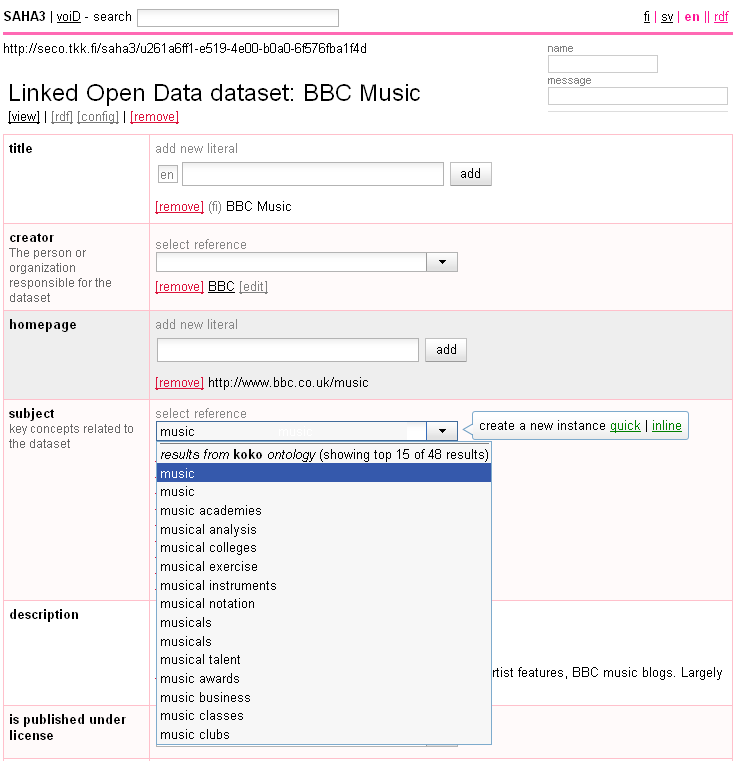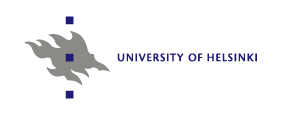- FIN-CLARIAH Research Infrastructure
A new national research infrastructure initiative FIN-CLARIAH for...
8.12.2021 8:12 by eahyvone - WarMemoirSampo published on December 3, 2021
A new “Sampo” application, “WarMemoirSampo”...
8.12.2021 8:04 by eahyvone - Five new SeCo papers accepted for the ISWC 2021
The 20th International Semantic Web Conference (ISWC 2021), the...
2.8.2021 6:53 by eahyvone
- Eero Hyvönen, Annastiina Ahola, Petri Leskinen and Jouni Tuominen: Connecting Everything to Everything Else in a Cloud of Cultural Heritage Knowledge Graphs: SampoSampo Data Linking Service and Semantic Portal (Abstract)
- Petri Leskinen, Eero Hyvönen, Alexandre Lionnet, Blandine Blukacz-Louisfert, Pierre-Etienne Bourneuf, Davide Rodogno, Grégoire Mallard, and Florian Cafiero: A Linked Open Data Service and Semantic Portal to Study the Assembly Minutes and Prosopography of the League of Nations (1920–1946)
- Annastiina Ahola, Lilli Peura, Rafael Leal, Heikki Rantala and Eero Hyvönen: Using generative AI and LLMs to enrich art collection metadata for searching, browsing, and studying art history in Digital Humanities
- Heikki Rantala, Annastiina Ahola, Esko Ikkala, Eero Hyvönen: Applying the Sampo-UI Framework for Searching and Visualizing Linked Open Data (abstract)
Saha - Browser Based Semantic Annotation Tool
Page updated: 11.05.2011
 Saha is a browser-based annotation tool, which can be used to annotate e.g. web-pages and
other documents on the web. With Saha, annotation process can be easily distributed and it can be
used without installing any annotation software on user's computer.
Saha is a browser-based annotation tool, which can be used to annotate e.g. web-pages and
other documents on the web. With Saha, annotation process can be easily distributed and it can be
used without installing any annotation software on user's computer.
Annotations are stored in a database, from which they can be retrieved for use in semantic applications, like portals using multi facet search paradigm. Saha uses semantic web technologies such as OWL and RDF(S).
Saha's user-interface consists of property-input-form, which can be easily configured for the annotation-schema being used. Different kinds of resources can be used as values of the properties:
- Resources defined in external ontologies and fetched to the annotation using the Onki Ontology Library Service
- Resources defined in other external sources, such as CultureSampo
- Instances of classes defined in the annotation-schema
- Literal values
Saha has undergone several major development versions. Demo of the current Saha (SAHA3) is available here. Please note that while browser interoperability is a design goal, some advanced features might not work properly in older versions of Internet Explorer.
Saha (SAHA3) is open source software and published in Google Code under the MIT license for open collaboration.
Basic documentation about Saha is available in the Saha Technical Report
Articles
2010
2007
2006
Contact person:
Jussi Kurki
University of Helsinki
firstname.lastname@helsinki.fi
Prof. Eero Hyvönen
Helsinki University of Technology, Laboratory of Media Technology and University of Helsinki
eero.hyvonen [at] tkk.fi


